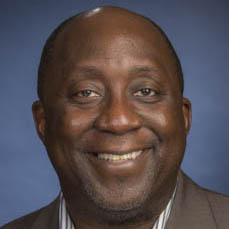 Six African doctoral students are spending two years at Worcester Polytechnic Institute in Massachusetts courtesy of the Regional Scholarship and Innovation Fund African-led Partnership for skills in Applied Sciences, Engineering and Technology (PASET). The program’s mission is to lift the economy in sub-Saharan Africa by strengthening science, technology, and engineering. It aims to build a critical mass of researchers and university professors by supporting African Ph.D. and postdoctoral candidates in the areas of information and communication technologies, including big data and artificial intelligence; food security and agribusiness; minerals, mining, and materials engineering; energy, including renewables; and climate change.
Six African doctoral students are spending two years at Worcester Polytechnic Institute in Massachusetts courtesy of the Regional Scholarship and Innovation Fund African-led Partnership for skills in Applied Sciences, Engineering and Technology (PASET). The program’s mission is to lift the economy in sub-Saharan Africa by strengthening science, technology, and engineering. It aims to build a critical mass of researchers and university professors by supporting African Ph.D. and postdoctoral candidates in the areas of information and communication technologies, including big data and artificial intelligence; food security and agribusiness; minerals, mining, and materials engineering; energy, including renewables; and climate change.
Founded seven years ago with support from the World Bank, the group initially consisted of the governments of Senegal, Ethiopia, and Rwanda. The initiative now has additional governments contributing to the effort: Burkina Faso, Ivory Coast, Ghana, Kenya, with Benin, Nigeria, and Mozambique in final stages of signing agreements. Tanzania is also in the pipeline.

Each of the PASET scholars has completed one year of doctoral studies at their home universities in Africa and are spending two years at their partner schools before returning home to complete their final year before earning their degrees. Of the inaugural class of 15 scholars, six are studying at Worcester Polytechnic Institute, the first university in the U.S. to receive and host these African Ph.D. students. Virginia Tech is the program’s other U.S. partner university. Other students are studying in South Korea.
 Winston Soboyejo, senior vice president and provost at Worcester Polytechnic Institute, is an advisor to PASET. “In many of these cases, these students are already hired as faculty at universities across Africa,” Dr. Soboyejo says. “At the end of their Ph.D. programs, they have jobs to go to where they can take the rich experience that they have gained and spread their knowledge in a way that will have a big impact on the landscape of higher education in Africa. I think more and more places will share in the WPI approach to higher ed in ways that will be enabled by this program.”
Winston Soboyejo, senior vice president and provost at Worcester Polytechnic Institute, is an advisor to PASET. “In many of these cases, these students are already hired as faculty at universities across Africa,” Dr. Soboyejo says. “At the end of their Ph.D. programs, they have jobs to go to where they can take the rich experience that they have gained and spread their knowledge in a way that will have a big impact on the landscape of higher education in Africa. I think more and more places will share in the WPI approach to higher ed in ways that will be enabled by this program.”
Alex Wyglinski, professor of electrical engineering and robotics engineering, is working with two of the scholars — Emmanuel Effah of Ghana and Fatoumata Thiam of Senegal. They are researching ways to apply the Internet of things to solve irrigation problems and water pollution. “It’s a wonderful opportunity for WPI to be part of a program that contributes to the professional growth of the next generation of African professors as they conduct research into some of the most difficult global challenges of today, including climate change and sustainability,” Dr. Wyglinski says.










